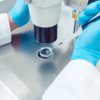Fritextsökning
Artiklar per år
Innehållstyper
-

Novo Nordisk sues compounding pharmacies in the US
Novo Nordisk is suing compounding pharmacies in Florida, USA, because the company claims to have found impurities in the active ingredient in the obesity drug Wegovy.
-

Novo Nordisk stämmer beredningsapotek i USA
Novo Nordisk stämmer beredningsapotek i Florida, USA. Anledningen är att bolaget säger sig ha hittat orenheter i den aktiva substansen som återfinns i fetmaläkemedlet Wegovy.
-

Larm om vaccinbrist efter utbrott av difteri i Västafrika
Ett allvarligt utbrott av difteri har drabbat Västafrika. Nu varnar Läkare utan gränser för brist på läkemedel och vaccin mot sjukdomen.
-

Founder of Bioarctic, Lars Lannfelt, is honoured: “I want to create something for the future”
It´s like a scientist’s dream: to be the world’s first with a drug that genuinely affects one of our major diseases. Lars Lannfelt and his company Bioarctic have achieved just that, and they are thus making a significant contribution to the history of Swedish medicine. He is now being awarded the Research!Sweden Award 2023.
-

High-tech companies are increasingly focusing on health
Tech companies have been taking an interest in healthcare for many years, and this interest seems to be increasing. “It’s not a sudden shift in trend, it’s more about them advancing their positions,” says Anna Lefevre Skjöldebrand, CEO of Swedish Medtech.
-

“You discover one thing – and then 10 new questions arise”
COVID-19, diabetes, heart disease, and the impact of dog ownership on humans are just some of multitasker Tove Fall’s areas of research. However, her current focus is on her next field: the role of gut flora in human health.
-

Study names with an attitude – more important than you might think
Ironman, T-rex, Star-Trek. Popcorn, Proper, Scout. Nope, these are neither fantasy films nor dog names. They’re the names of ongoing cancer studies in Sweden.
-

Rickard Sandberg on this year’s Nobel Prize in Medicine: ”A key discovery”
The discovery that paved the way for the development of todays mRNA vaccines is the basis for this year’s Nobel Prize in Physiology or Medicine.
-

The first drugs to slow down Alzheimer’s – but what does it mean for patients?
New treatments for early Alzheimer’s are bringing hope to thousands of patients and their families. The question is, who will get the treatment, how will the right patients be found in time, and will the healthcare system’s resources be sufficient? Life
-

19 medicines in Sweden are under investigation in a major EMA inquiry
unless new evidence can be provided that they are up to standard.
-

Why the world renown researcher Marc Tessier-Lavigne resigns as Stanford´s president
In mid-summer, neuroscientist Marc Tessier-Lavigne announced his resignation as President of Stanford following allegations of manipulated study data. According to the reporter Theo Baker, who first reported the story, Tessier-Lavigne “rewarded the winners and punished the losers”. Here is the background of the story which has shaken the American scientific community over the summer.
-

Förlikning i babypuderskandal stoppas av domstol
Det amerikanska läkemedelsbolaget Johnson & Johnson har för en andra gång fått avslag av en domare om en konkursansökan för dotterbolaget LTL Management, mest känt som enheten bakom det omtalade babypudret som misstänkts ha orsakat cancer i en rad fall.
-

Anna Törner: The minute between life and death
“I have never told anyone about this day that happened more than 20 years ago. But I sometimes reflect on what happened, on what might have happened. When I try to understand why I haven’t told anyone, I find the answer: a feeling of shame. There is no forgiveness for something like this, even though it is very human to be distracted for a moment,” Anna Törner writes in a column.
-

Study: Semaglutide tablet produces weight loss
The pharmaceutical semaglutide is effective for weight loss even when given in tablet form, according to a phase 3 study.
-

Egetis lägger ned buddiskussionerna
Svenska läkemedelsutvecklaren Egetis Therapeutics har gått ut med att diskussionerna om ett potentiellt förvärv av företaget nu har lagts ner.
-

Alligator, Tataa, Ilya: Så valde bolagen sina namn – del 1
Att namnge ett företag kräver strategi, långsiktighet, juridiska kollar – och gärna ett mått av originalitet. Här är fem bolag inom life science med namn som sticker ut, och historierna bakom dem. Inom kort presenterar vi ytterligare fem.
-

Swedish and Ukrainian Medical Product Agencies sign an agreement
The Directors-General of the Swedish and Ukrainian Medical Products Agencies have signed a cooperation agreement.
-

Study: Chat GPT is more empathetic than doctors
The AI tool Chat GPT is not only more accurate when it comes to answering patient questions – the chatbot is also perceived as almost 10 times more empathetic than real doctors, a new study reveals.
-

New report: Fewer PhDs in life sciences
A new report from Vinnova suggests that competency returns in the life science sector are declining.
-

Egetis bekräftar budsamtal
Den svenska läkemedelsutvecklaren Egetis Therapeutics för diskussioner om ett potentiellt bud på bolaget. Det bekräftar företaget i en kommentar till ihärdiga rykten på marknaden.
-

Major advances in IVF labs in the last few decades
Since the introduction of in vitro fertilisation several decades ago, many developments have been made in the field, and the main part of that development has taken place in the lab.
-

Så mycket väntas lecanemab sälja globalt
Försäljningen av Leqembi (lecanemab), som nyligen fick ett accelererat USA-godkännande som behandling mot Alzheimers sjukdom, väntas globalt uppgå till sju miljarder dollar år 2030, enligt det japanska läkemedelsbolaget Eisai.
-

“I am driven by the desire to develop a product that can be sold worldwide”
Ranked number one in the world by the WHO in diarrhoea research and soon in phase III studies for its vaccine candidate – Scandinavian Biopharma is rushing forward in the pursuit of the world’s first ETEC vaccine. Meet the company’s CEO Björn Sjöstrand.
-

Column: ”Cheating with pea flowers and does it matter whether you are right?”
Is it possible to forgive shortcuts or outright cheating in science - if it turns out that the researcher was ultimately right? Anna Törner discuss this topic in a column.